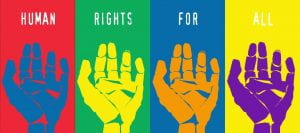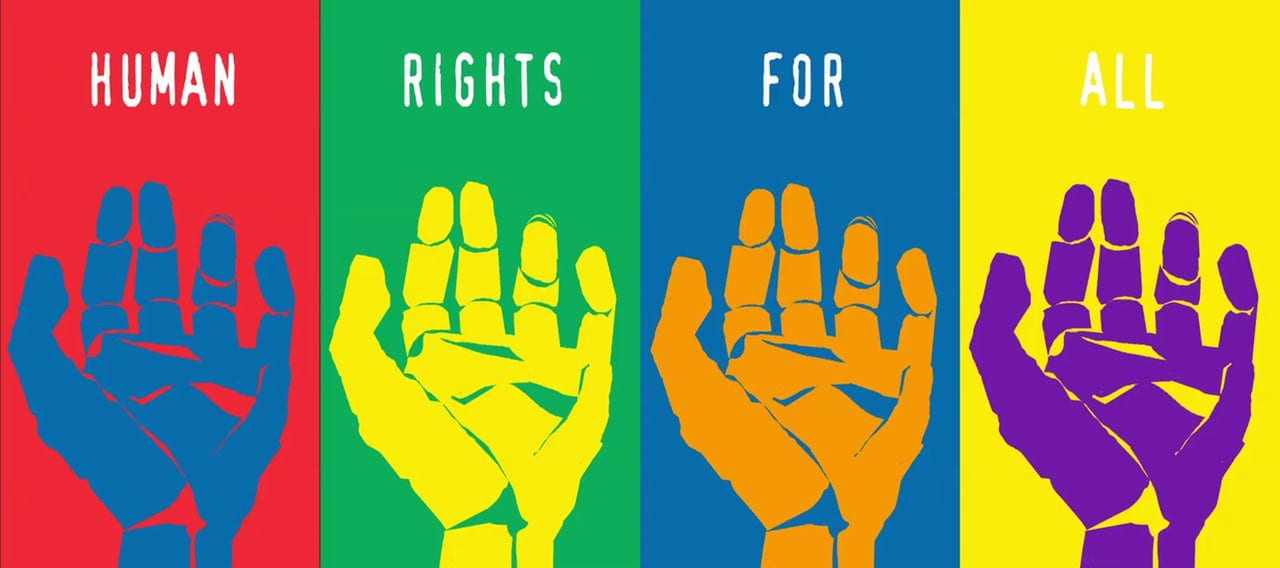
As we approach 2020 and the end of this decade, we come across several lists of important happenings, milestones, and statistics in various disciplines across the world. As for human rights, it is important to reflect where we stand on the provision and fight for human rights and highlight the important issues that emerged during this decade.
The Decade of Refugees
It will not be inaccurate to call this a decade of refugees, as the world is currently witnessing the highest levels of displacement on record. According to UNHCR, the UN Refugee Agency, 37,000 people are forced to flee their homes every day due to some kind of conflict or persecution. An unprecedented 70.8 million people around the world have been forced from home by the end of last year. Among them are nearly 30 million refugees, over half of whom are under the age of 18. This is the highest level of refugees, displaced people, and asylum seekers in UN history. There are also millions of stateless people, who have been denied a nationality and access to basic rights such as education, healthcare, employment and freedom of movement. The US policy to forcibly separate migrant families has also affected thousands of people, especially children, and sparked a new debate of refugee rights and laws within the country. The UN agenda continues to swell with issues surrounding conflicts — from South Sudan to Syria and Ukraine — and intercommunal fighting that forces hundreds of thousands from their homes. The top refugee hosting countries in the world are Turkey, Pakistan, Uganda, Sudan, and Germany respectively. In the past few years, the Syrian civil war, unrest in Afghanistan, civil war in South Sudan, Rohingya genocide in Myanmar, and the Somalian crisis account for more than two thirds of all refugees worldwide who come from these five countries alone. These staggering statistics show that the world faces a serious refugee crisis as we enter into the new decade.

Youth activism
Youth activism was definitely a defining part of the 2010s where notable youth leaders like Malala Yousafzai and Greta Thunberg emerged to fight for human rights. Malala Yousafzai made history by becoming the youngest Nobel Peace prize winner for her struggle against the suppression of children and youth as well as her activism for the right of education for all children. She has been featured on the cover of Teen vogue for its last issue of the decade, and said in her interview that “What has given me hope is that the last decade was a decade of youth activism, but the next one is going to be about youth change-making, and that’s what gives me hope.”
Greta Thunberg, the youngest climate activist has been declared Time’s person of the year as she inspired 4 million people to join the global climate strike on September 20, 2019, what became the largest climate demonstration in human history. Other notable examples of young leaders that are making their mark in the world include the Parkland shooting survivors and gun-control activists Emma Gonzalez and her friends, founder of a youth-led climate action group Jamie Margolin, access-to-water activist Mari Copen, and actress/feminist Yara Shahidi. These people have come forward to demonstrate and set examples for the power of youth in changing the world and taking lead roles to participate in global activism on a variety of issues, becoming more active than previous generations due to advancing technology and media access.

LGBTQ Rights
This was definitely the decade where LGTBQ rights became mainstream through media coverage, activism, debates and discussions, and laws and regulations. Pride celebrations and inclusion campaigns were highlighted more than ever before. According to Amnesty International, a few momentous steps regarding the rights of the LGBTQ community include a landmark ruling in India. Decriminalizing consensual same-sex relations, marking a critical milestone in the three-decades-old struggle by LGBTQ activists and their allies in India. Additionally, Taiwan became the first in Asia to legalize same-sex marriage after passing a historic law in May 2019. And Pakistan passed one of the most progressive legislations in the world on transgender rights, becoming the first Asian country and one of the few in the world to legally recognize self-perceived gender identity. This decade also produced the first gay presidential candidates in the US, Republican Fred Karger in 2012, and is also the first decade to see a Democratic primary in which LGBTQ rights aren’t raised as a point of controversy. In fact, Democratic Pete Buttigieg is also an openly gay presidential candidate running for office in 2020.

Others
These are the three major highlights of the decade in the light of human rights. Apart from these, climate change has been the most crucial, talked about, and significant matter across the world. The Paris Climate Agreement adopted by 195 countries for the first time to take common climate action was an important milestone. The rise of the #MeToo Movement, conversations around gun control, immigration laws debate, feminism and women rights activism, racial discrimination, human genocide, terrorism, and healthcare rights are some other major highlights of the decade. Additionally, progress has been made for the rights of women, minorities, and disadvantaged groups, but there is still a long way to go that requires continued advocacy and struggle for human rights.
UAB
An important milestone for UAB was the founding of the Institute for Human Rights in 2014 to “provide a framework for Birmingham’s human and civil rights activities and to connect the city’s historical significance in the struggle for civil rights to national and international collaborative initiatives.” Built on the foundations of education, research, and outreach, IHR serves as a platform for all-things human rights not just on the UAB campus, but as an internationally renowned platform for the promotion and protection of human rights. The IHR blog has not only been used as a voice for local human rights issues, but also around the world such as Kashmir, Venezuela, Chile, Spain, South Africa, China, Afghanistan, India, Yemen, Saudi Arabia, Cameroon, and Kenya to name a few. Some of the important issues covered by the IHR blogs other than those mentioned above include gun control, mental health, child marriages, disability rights, hate violence, and gender-based violence.
Looking forward into the new decade, we are hopeful to see a greater-than-ever progress of the safety and provision of human rights for all. Let’s make a resolution to play our part, as little as it may be, to revive equal rights across our local, national, and global communities.

